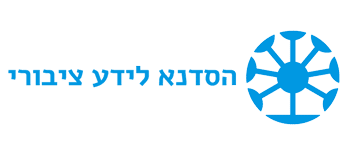Petition against the Ministry of Construction: Reveal the division of construction blocs
The Public Knowledge Workshop demands that the information from the Mapping Center be accessible, so that anyone interested in a lot can find out if there will be any neighboring towers or parks constructed.
Originally published in Calcalist on 16/2/16 by Omer Cabir. Translation by Daniel Padon and Dror Markus.
Who owns the information produced by a government office funded by the taxpayer’s money? Presumably this should be the state’s citizens, that pay for the information and have the right to access it freely and use it as they wish. On the other hand, there are government agencies that assume that the data belongs to them and that it is a commercial product they have the right to sell as they see fit.
This issue sits at the center of a petition submitted by the Public Knowledge Workshop against the Survey of Israel (SoI), an auxiliary unit of the Ministry of Housing and Construction, with the demand to acquire free, unlimited access to the geographic data generated and collected by the unit.
One of the projects run by the Workshop is the Open Taba website that allows citizens to see on a map construction plans that have been approved or are in the process of being approved, in accordance with the division of urban blocs. Today the website holds data for only 16 local authorities, and in the past few months it has begun expanding to all the authorities in Israel.
For this purpose, the Workshop contacted SoI to get the full mapping data of the construction blocs in Israel, including their locations and boundaries. This data, cross-referenced with the data from the Ministry of the Interior was used to create a map showing construction plans searchable by urban blocs, allowing interested citizens to see and locate them.
The information requested by the Workshop is held and regularly updated by SoI, and there is no special action needed by the office to prepare and transfer it. SoI sells the data as a package for the price of 125 NIS per bloc. With 15,000 blocs, the price of the full file stands at 1.875 million NIS.
The Workshop is an independent non-profit organization with a limited budget, so last May it submitted a request to receive the data through the Freedom of Information Law. In December, after a string of dismissals and evasions, SoI responded that it is willing to transfer the requested information at no cost, in accordance with specific conditions and ex gratia.
These conditions included a requirement to sign a license agreement that prohibits additional usage of the data without prior authorization, prohibits transferring the data to other parties and demands that the Workshop declares the data as owned by SoI. The Workshop planned to use the information not only for the Open Taba project, but also to make it publicly available and allow to download the raw data for a free use. Therefore, the Workshop rejected SoI’s conditions and petitioned the Court for Administrative Matters.
“Some of the conditions declared by SoI as necessary for transferring the data are illegal,” stated the petition, that was submitted by Attorney Yonatan Berman. “Every person has the right of access to the file, therefore SoI cannot make preconditions for the transfer of the information regarding the prohibition of its transferring to other parties and not to use it in any project other than Open Taba, and SoI does not have any copyright on this file… The Copyright law grants copyright ownership only for ‘original creations’, and anyways dismisses the existence of copyright for ‘facts or statistics’. The file being requested is not a creative work, is not original, and even if it was an ‘original creation’ it would not be protected by copyright due to the fact that it is nothing but a file of statistics and facts.”
In its petition, the Workshop is requesting that the court instructs SoI to transfer the data in question without the preconditions specified by the unit. “We are talking about public data that belongs to the public, that has great value for the public and needs to be released to the public,” told Calcalist Shevy Korzen, the director of the Public Knowledge Workshop. “SoI claim that they have copyright protection, which is incorrect, and they have started the practice of selling the data, while it is unclear with what authority they are doing this. In seven months of correspondence with us, they have never responded to our inquiry as to what authority they have to sell the data. We have here an administrative authority that is acting like a market dealer. The information is supposed to be free for everyone, not just for the Public Knowledge Workshop that has sent a letter from an attorney. If we deserve it, everyone deserves it.”
SoI’s response: “The claims are inaccurate, and this is an understatement. The information the Workshop is petitioning to receive is published for the general public by SoI for free, for some time now on the government maps site. SoI agreed to transfer the data with relevant conditions that the Workshop, perhaps in an attempt to make headlines, decided to reject. SoI rejects completely the claim that it does not have copyright protection on the information as it produces the information and is responsible for its accuracy.”
Korzen rejects some of SoI’s claims. “The fact that the site has a limited map and only it can be used doesn’t mean that the data is open,” she said. “The Workshop’s volunteers aren’t requesting simply SoI’s maps, but the data itself so that they can enrich them and upgrade them. SoI’s declaration that the data is open already is misleading and untrue. The data is presented in a way that it has no use. If the information is open, give us the original files and let us and other developers use it freely.”

